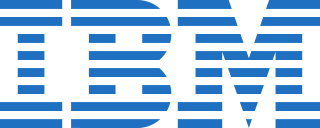Related Research Articles

Multiple Virtual Storage, more commonly called MVS, is the most commonly used operating system on the System/370, System/390 and IBM Z IBM mainframe computers. IBM developed MVS, along with OS/VS1 and SVS, as a successor to OS/360. It is unrelated to IBM's other mainframe operating system lines, e.g., VSE, VM, TPF.

An operating system (OS) is system software that manages computer hardware and software resources, and provides common services for computer programs.

In computing, time-sharing is the sharing of a computing resource among many users at the same time by means of multiprogramming and multi-tasking.

The Conversational Monitor System is a simple interactive single-user operating system. CMS was originally developed as part of IBM's CP/CMS operating system, which went into production use in 1967. CMS is part of IBM's VM family, which runs on IBM mainframe computers. VM was first announced in 1972, and is still in use today as z/VM.
This article presents a timeline of events in the history of computer operating systems from 1951 to the current day. For a narrative explaining the overall developments, see the History of operating systems.

Fernando José "Corby" Corbató was an American computer scientist, notable as a pioneer in the development of time-sharing operating systems.

VM is a family of IBM virtual machine operating systems used on IBM mainframes System/370, System/390, zSeries, System z and compatible systems, including the Hercules emulator for personal computers.

CP/CMS is a discontinued time-sharing operating system of the late 1960s and early 1970s, known for its excellent performance and advanced features. It had three distinct versions:
The Job Entry Subsystem (JES) is a component of IBM's MVS mainframe operating systems that is responsible for managing batch workloads. In modern times, there are two distinct implementations of the Job Entry System called JES2 and JES3. They are designed to provide efficient execution of batch jobs.
OfficeVision was an IBM proprietary office support application.
Richard P. Gabriel is an American computer scientist known for his work in computing related to the programming language Lisp, and especially Common Lisp. His best known work was a 1990 essay "Lisp: Good News, Bad News, How to Win Big", which introduced the phrase Worse is Better, and his set of benchmarks for Lisp, termed Gabriel Benchmarks, published in 1985 as Performance and evaluation of Lisp systems. These became a standard way to benchmark Lisp implementations.

Alan Kotok was an American computer scientist known for his work at Digital Equipment Corporation and at the World Wide Web Consortium (W3C). Steven Levy, in his book Hackers: Heroes of the Computer Revolution, describes Kotok and his classmates at the Massachusetts Institute of Technology (MIT) as the first true hackers.

VPS/VM was an operating system that ran on IBM System/370 – IBM 3090 computers at Boston University in general use from 1977 to around 1990, and in limited use until at least 1993. During the 1980s, VPS/VM was the main operating system of Boston University and often ran up to 250 users at a time when rival VM/CMS computing systems could only run 120 or so users.
This article covers the History of CP/CMS — the historical context in which the IBM time-sharing virtual machine operating system was built.
The history of IBM mainframe operating systems is significant within the history of mainframe operating systems, because of IBM's long-standing position as the world's largest hardware supplier of mainframe computers. IBM mainframes run operating systems supplied by IBM and by third parties.

OS/360, officially known as IBM System/360 Operating System, is a discontinued batch processing operating system developed by IBM for their then-new System/360 mainframe computer, announced in 1964; it was influenced by the earlier IBSYS/IBJOB and Input/Output Control System (IOCS) packages for the IBM 7090/7094 and even more so by the PR155 Operating System for the IBM 1410/7010 processors. It was one of the earliest operating systems to require the computer hardware to include at least one direct access storage device.
James George Mitchell is a Canadian computer scientist. He has worked on programming language design and implementation, interactive programming systems, dynamic interpreting and compiling, document preparing systems, user interface design, distributed transactional file systems, and distributed, object-oriented operating systems. He has also worked on the design of hardware for computer graphics, high-level programming language execution, and audio input/output.
Tom Van Vleck is an American computer software engineer.

Edson C. Hendricks, an IBM computer scientist, developed RSCS, fundamental software that powered the world’s largest network prior to the Internet and which directly influenced both Internet development and user acceptance of networking between independently managed organizations. Within IBM, the resulting network later became known as VNET and grew to 4000 nodes. In the academic community, VNET formed the base for BITNET which extended to 500 organizations and 3,000 nodes. VNET was also the networking design underpinning EARN in Europe, and NETNORTH in Canada.
References
- 1 2 3 "Computer Pioneers - Allan L. Scherr". history.computer.org. IEEE Computer Society. Retrieved May 30, 2019.
- ↑ "Allan L. Scherr". awards.acm.org. Association for Computing Machinery.
- 1 2 Scherr, Allan L. (January 1, 2005). "Managing for Breakthroughs in Productivity". SSRN 655822.
- ↑ "Rhinebeck Candidate Profiles". Poughkeepsie Journal . October 29, 2015. p. 5A. Retrieved June 6, 2019– via Newspapers.com.